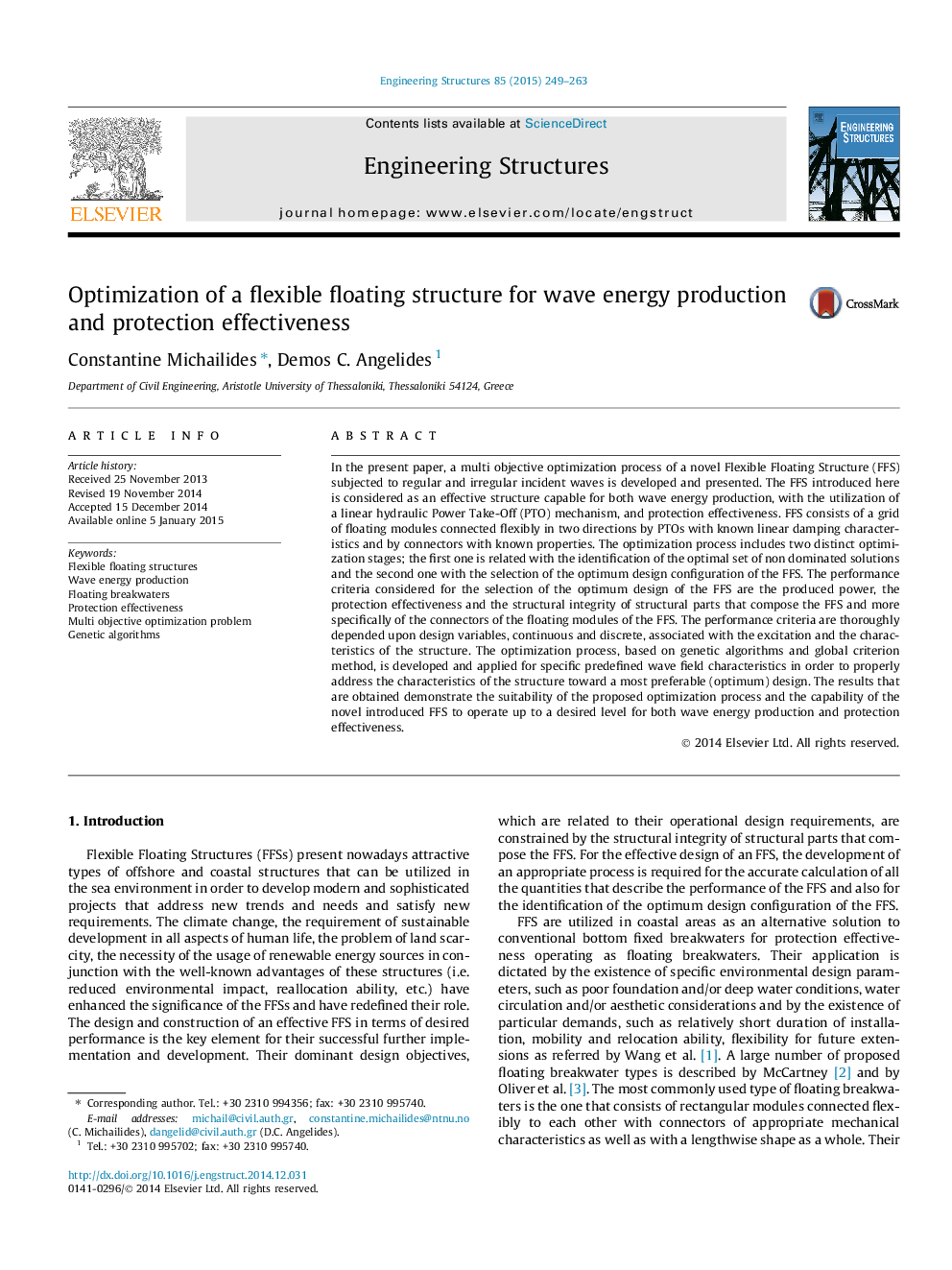| کد مقاله | کد نشریه | سال انتشار | مقاله انگلیسی | نسخه تمام متن |
|---|---|---|---|---|
| 266447 | 504360 | 2015 | 15 صفحه PDF | دانلود رایگان |
• A novel Flexible Floating Structure (FFS) capable for energy production and protection effectiveness is introduced.
• Use of genetic algorithms for multi objective optimization when an objective function does not exist.
• As the produced power increases, the protection effectiveness of the FFS decreases.
• The 3 × 3 grid case is most representative in case the focus is at energy production in irregular waves.
In the present paper, a multi objective optimization process of a novel Flexible Floating Structure (FFS) subjected to regular and irregular incident waves is developed and presented. The FFS introduced here is considered as an effective structure capable for both wave energy production, with the utilization of a linear hydraulic Power Take-Off (PTO) mechanism, and protection effectiveness. FFS consists of a grid of floating modules connected flexibly in two directions by PTOs with known linear damping characteristics and by connectors with known properties. The optimization process includes two distinct optimization stages; the first one is related with the identification of the optimal set of non dominated solutions and the second one with the selection of the optimum design configuration of the FFS. The performance criteria considered for the selection of the optimum design of the FFS are the produced power, the protection effectiveness and the structural integrity of structural parts that compose the FFS and more specifically of the connectors of the floating modules of the FFS. The performance criteria are thoroughly depended upon design variables, continuous and discrete, associated with the excitation and the characteristics of the structure. The optimization process, based on genetic algorithms and global criterion method, is developed and applied for specific predefined wave field characteristics in order to properly address the characteristics of the structure toward a most preferable (optimum) design. The results that are obtained demonstrate the suitability of the proposed optimization process and the capability of the novel introduced FFS to operate up to a desired level for both wave energy production and protection effectiveness.
Journal: Engineering Structures - Volume 85, 15 February 2015, Pages 249–263
